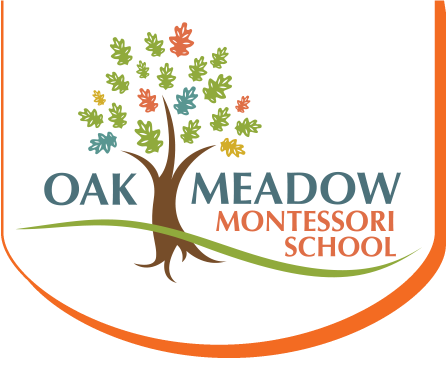Science education is deeply built into the DNA of Oak Meadow School. Maria Montessori was herself a trained scientist, one of the first female medical physicians in Italy. She founded her system of education through the use of the scientific method, testing a variety of approaches, observing children closely, and selecting those practices that allowed the natural learning interests and motivations of children to flourish. Every teacher at Oak Meadow follows that same methodology each day, providing an environment where children have amazing opportunities to discover, experiment, innovate, and learn. Science as a core academic curriculum begins with the youngest children in Beginners and Children’s House. Oak Meadow School may be the only school in our area where students in kindergarten through eighth grade are given opportunities each week to work closely with special subject teachers in science, STEM, and nature.
 Oak Meadow’s annual Science Fair was held last night. This event highlights the many benefits of the science program at Oak Meadow. For our students, science is about deeply digging into the scientific method, coming up with their own project ideas, following their own design for developing a hypothesis, testing the results, and deeply researching the outcomes. Unlike most schools, our students begin science fair as third year students, with every student participating every year through eighth year. That adds up to six years of intensive science exploration for every student. Beginning in sixth year, students are given even more in-school support for their science fair project. There are nine weeks of optional Science Fair Saturdays where students can get help between 9am and noon. Nearly every student takes advantage of this opportunity to ask questions, seek guidance, dig into their research, and examine the meaning of the outcomes.
Oak Meadow’s annual Science Fair was held last night. This event highlights the many benefits of the science program at Oak Meadow. For our students, science is about deeply digging into the scientific method, coming up with their own project ideas, following their own design for developing a hypothesis, testing the results, and deeply researching the outcomes. Unlike most schools, our students begin science fair as third year students, with every student participating every year through eighth year. That adds up to six years of intensive science exploration for every student. Beginning in sixth year, students are given even more in-school support for their science fair project. There are nine weeks of optional Science Fair Saturdays where students can get help between 9am and noon. Nearly every student takes advantage of this opportunity to ask questions, seek guidance, dig into their research, and examine the meaning of the outcomes.
 Last night I spent time looking at all of the projects and speaking with as many students as possible. To give you an idea of the creativity, depth, and complexity of the questions being tackled by our students, here are just a few samples:
Last night I spent time looking at all of the projects and speaking with as many students as possible. To give you an idea of the creativity, depth, and complexity of the questions being tackled by our students, here are just a few samples:
- To determine which distance sensor (ultrasonic or infrared) is the most applicable for two different navigation systems
- To test the McGurk Effect when your brain is fooled by your sight, to determine if the effect happens with a lot of words or occurs rarely, the impact of the number of syllables, and differences between using ordinary versus nonsense words
- To determine how the concentration of a quenching solvent and the casting thickness of the membrane affect the diameter of the pores, the thickness of the membrane, and the thickness of the dense filtration layer
- To determine the effect of fabrics of different thread counts on capillary action
- To determine if latex helium balloons have a linear or exponential lift decay
- To determine if the gender of the person affects their test performance in the Stroop Effect test
- To determine which type of ice melt (rock salt, regular, or pet friendly) harms vegetation (Hedera Ivy Plants) the most
 During the Science Fair last night, I spoke with several of our Eighth Graders to ask, “Over the course of your six years conducting experiments, what were the most important factors that led to real growth and learning for you individually?” Here’s what students told me:
During the Science Fair last night, I spoke with several of our Eighth Graders to ask, “Over the course of your six years conducting experiments, what were the most important factors that led to real growth and learning for you individually?” Here’s what students told me:
- I’ve learned the most when my hypothesis was wrong. That has pushed me to learn something new.
- I’ve learned the most by having to come up with my own original ideas, rather than just copying an experiment that someone else has done. That way I had to create my own questions and hypothesis. At Oak Meadow, I had enormous freedom and support. The project was my choice, and I am more motivated when it is something I want to figure out. Having time on Saturdays is also helpful because I was able to get support from teachers and friends.
- It doesn’t really matter if the hypothesis is correct or not. What matters the most is the research you do after you have collected your data. That’s what shows “why” something happened, and that’s when real learning has occured for me.
- I have benefited the most by taking lots of time to find a topic that I am really interested in. I probably spend half of the time available just thinking about what I want to explore, so that I make sure it is something that is truly meaningful to me. The more time I have spent thinking through my project, the more satisfying it has been to me personally. I also find it helpful to see how my research connects to real-world application. This year for instance, my research is highly relevant in the field of synthetic biology.
- Science at Oak Meadow is not a task, it is about being open to anything, including new ideas I’ve never considered.
- I have learned about time management, being self-directed, advocating for myself, and learning how to figure out something important to me. I have learned to be a more independent thinker at Oak Meadow.
- Coming up with my own idea is what’s most important to me. I also benefited from being able to connect with my teachers through Science Saturdays. I have learned to devote more time to working on my project. I no longer wait until the fall to start thinking about science fair. I now start thinking about ideas over the summer. The more time I have devoted to my project, the more I have benefited.
 All of our middle school students get a rigorous exposure to biology, chemistry, and physics. Many of the Oak Meadow graduates I’ve met told me that they felt especially well prepared in science and in writing lab reports. Starting next school year, our Middle School science teacher, Dan D’Amore, will begin an intensive year-long science project with the Upper Elementary sixth years, focusing on environmental science. According to Dan, a thorough study of environmental science is often neglected in schools. That’s unfortunate, because the topic is highly important in our world today. Environmental science includes elements of all of the other sciences, so it is the perfect place to start going more deeply into scientific study.
All of our middle school students get a rigorous exposure to biology, chemistry, and physics. Many of the Oak Meadow graduates I’ve met told me that they felt especially well prepared in science and in writing lab reports. Starting next school year, our Middle School science teacher, Dan D’Amore, will begin an intensive year-long science project with the Upper Elementary sixth years, focusing on environmental science. According to Dan, a thorough study of environmental science is often neglected in schools. That’s unfortunate, because the topic is highly important in our world today. Environmental science includes elements of all of the other sciences, so it is the perfect place to start going more deeply into scientific study.
Oak Meadow seeks to become a nationally-recognized innovation leader among schools as part of our strategic vision. Science education for the 21st century will be integral to this plan.





